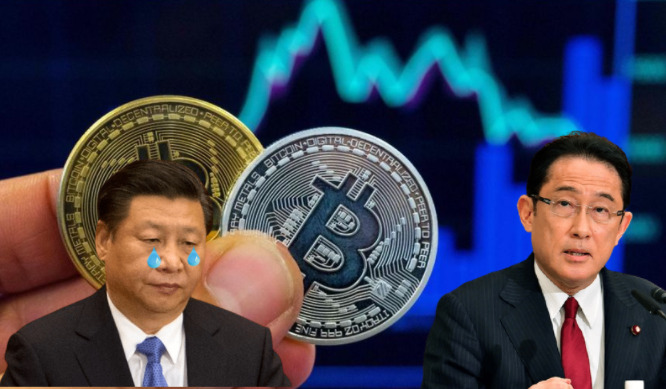The people of China are beginning to park their money in Japan because it is much safer outside the Communist nation. The Chinese real estate sector, as we all know, is collapsing. This collapse is having a taxing effect on the country’s economy as a whole. The rich within China no longer feel their assets are safe, so, they are looking for alternative destinations to safely park their money. One such destination is Japan. However, any Chinese individual seeking to transfer more than $50,000 (about 5.6 million yen) abroad over a year must first apply for permission from the Chinese government. Needless to say, if the rich in China apply for such permissions, they will probably never see the light of day again.
So, the people who want to take their money out of China are required to do so without alerting Chinese authorities. It’s a massive crime, but they are willing to take their chances since one never knows when their money will simply evaporate if allowed to remain in China. Therefore, cryptocurrency is coming in handy for such Chinese citizens. They are transferring their money to Japan in the form of crypto, and their partners in Japan convert the same into Yen which is safely parked in the Japanese real estate sector.
Japan Seems Supportive of the Scheme
Tokyo tax authorities uncovered a China-based scheme that invested about 27 billion yen ($237 million) in Japanese real estate. According to Japanese publication Asahi, officials of the Tokyo Regional Taxation Bureau conducted a tax audit of a company in the capital’s Taito Ward that operated a photo studio aimed at foreign tourists. Tax officials found that for the three years until March 2019, three individuals living in China sent the equivalent of about 27 billion yen in cryptocurrency to the Tokyo company to have it converted into yen. The Tokyo company pocketed some of the yen as its commission.
The report added that the Chinese trio which transferred money into Japan did so on behalf of several Chinese investors who wanted to invest in Japan’s real estate sector. Most importantly, despite the racket being uncovered by Japan, the government in Tokyo does not seem interested to take action against the Japanese firm which acted as a vehicle for Chinese investors to park their money in Japan.
According to sources quoted by Asahi, Tokyo tax authorities considered taxing the Tokyo company for the commissions it received, but they abandoned the idea because of the company’s financial losses. This begs the question, is Japan supportive of money being drained out of China and being put into its own real estate sector?
Chinese Investors Scared of China’s Real Estate Sector
China’s once-promising real estate sector has gone completely bust. With it, all hopes of the Chinese economy recovering anytime soon have also been slashed. China’s real estate crisis is so tremendous that it threatens to disrupt global markets and affect economies around the world. If you thought the Evergrande crisis was the biggest worry for China – brace yourself for a slew of Chinese real estate giants defaulting on their loan obligations.
Chinese investors are no patriots. They are neither loyal to the Chinese Communist Party. They are simply concerned about the safety of their money. In China, being a wealth-oriented person or enterprise is nothing short of a crime. That, however, does not steal from the fact that Chinese investors have been parking their money in Japan right under the CCP’s nose, using a mode of transaction that the Communist dolts of China are simply too illiterate to comprehend.
China’s Real Estate Crisis
In the most recent addition to a mounting real estate crisis in China, shares of Kaisa Group, a Shenzhen-based developer, were suspended from trading on November 5 in Hong Kong. Kaisa Group is currently facing “unprecedented pressure” on its finances. Kaisa Group said that it was experiencing multiple headwinds, such as a challenging real estate market environment and the recent downgrading of its credit ratings by international agencies.
The Evergrande crisis of China led to a series of companies in China defaulting on their huge loans. Modern Land China has become the latest developer from Asia’s largest economy to miss a dollar bond payment, underscoring the stress spreading across the sector in China. Earlier, Fantasia Holdings, Sinic Holdings, and China Properties had all defaulted on offshore notes. Modern Land China missed a dollar bond that is listed on the Singapore Stock Exchange
Fantasia Holdings Group failed to repay $206 million in debts due on October 4. The Fantasia Holdings Group had raised $500 million in the year 2016. The debt fell due in 2021, but the dismal position of the Chinese real estate market has crippled the property developer.
The Chinese economy banked on the real estate sector enormously. Now, there is simply no developer in China who is not feeling the pain of the crisis which has engulfed the sector. It is, therefore, natural for Chinese investors to do all they can to protect their finances – while they still can.
